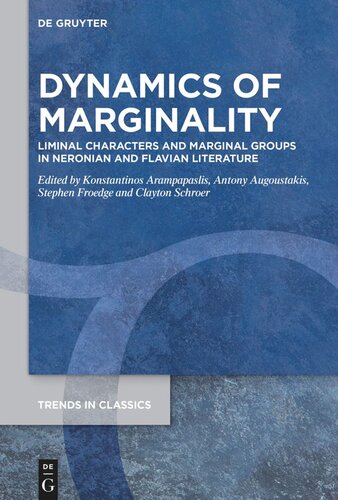

Most ebook files are in PDF format, so you can easily read them using various software such as Foxit Reader or directly on the Google Chrome browser.
Some ebook files are released by publishers in other formats such as .awz, .mobi, .epub, .fb2, etc. You may need to install specific software to read these formats on mobile/PC, such as Calibre.
Please read the tutorial at this link: https://ebookbell.com/faq
We offer FREE conversion to the popular formats you request; however, this may take some time. Therefore, right after payment, please email us, and we will try to provide the service as quickly as possible.
For some exceptional file formats or broken links (if any), please refrain from opening any disputes. Instead, email us first, and we will try to assist within a maximum of 6 hours.
EbookBell Team

4.7
46 reviewsThis volume explores the theme of marginality in the literature and history of the Neronian and Flavian periods. As a concept of modern criticism, the term marginality has been applied to the connection between the uprooted experience of immigrant communities and the subsequent diasporas these groups formed in their new homes. The concept also covers individuals or groups who were barred from access to resources and equal opportunities based on their deviation from a "normal" or dominant culture or ideology. From a literary vantage point, we are interested in the voices of "marginal," or underappreciated authors and critical voices. The distinction between marginalia and "the" text is often nebulous, with marginal comments making their way into the paradosis and being regarded, in modern criticism, as important sources of information in their own right. The analysis of relevant passages from various authors including Lucan, Petronius, Persius, Philo of Alexandria, Pliny the Elder, Silius Italicus, and Statius, as well as the Moretum of the Appendix Vergiliana is vital for our understanding of the treatment of marginalized people in various literary genres in relation to each one’s different purposes.